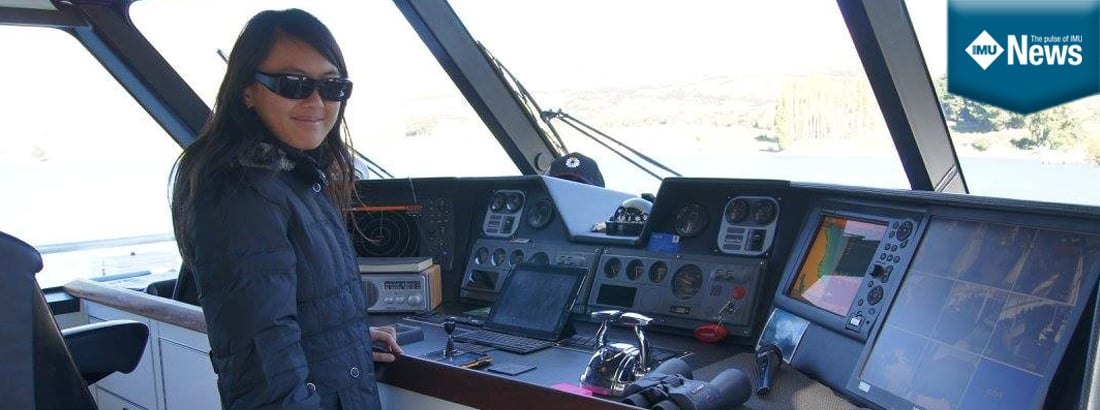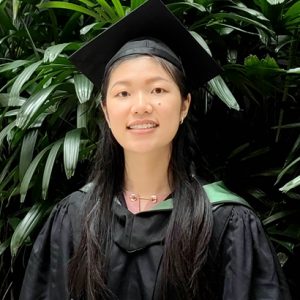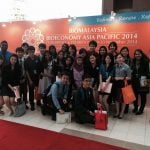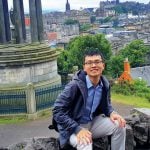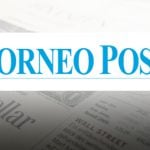Chrystine Yan Zou Yi had wanted to study biotechnology since she was in Form 4 even though she was not sure in which area specifically or what the job prospects are. She has always been deeply intrigued by science itself and was deeply influenced by figures like Bill Nye when she was a child and Michio Kaku when she became older. Before deciding on her career path after SPM, Chrystine watched a video by Michio Kaku on the Biotech Revolution. What struck her most at that time was the possibility of genetic engineering. Although her decision was opposed by many because of its bleak job prospects in Malaysia, she was determined and went on to studying Medical Biotechnology (MB) at IMU in 2013 and graduated with a Bachelor of Science (Hons) Medical Biotechnology (IMU). She is currently a master’s student by research at Monash University Malaysia (under scholarship and FRGS).
| The areas of her research include microbiology, molecular biology, and bioinformatics with the project title ‘Whole Genome Sequencing of Local Vibrio Parahaemolyticus’. Essentially, the whole theme is genomics and the bacteria, found in shrimps, is responsible for the cause of major economic loss in shrimp aquaculture. Chrystine will be studying the diversity of the genome to trace the source of its virulence and hopefully find a better way to manage the outbreak in shrimp farms since current techniques are not effective. |
Learning experiences in IMU MB programme I’m usually the social outcast of any group especially when I’m new. But the caring lecturers made sure no one was left behind. I was surprised that half of them remembered my name in the first semester itself even though we rarely had classes together and they remembered me all through the years that I was there. It may be a small thing to many but it mattered a lot to an introvert like me.
On the other hand, the lab/practical sessions were very well conducted. Theory first then hands-on! Although I was not fully satisfied during the hands-on sessions initially, but that changed in my final year as the classes were more centred on MB students then. Much to my surprise, I had no trouble with basic pipetting skills unlike some students from the other institutions.
Being a nerd, I read up a lot of things prior to lectures relating to my personal interests so it is the lab sessions with all the analytical and practical parts that enthused me the most. I loved learning how things work and wanted to be the person that can solve every technical problem in the lab (but sadly I’m still not at that stage yet). I enjoyed lab sessions the most because I think that’s a better way to learn. In lectures, you only absorb information like a sponge and it will soon dry out while hands-on experience allows active learning; you still have to absorb information but instead of letting it dry out until exam arrives, you can practice and apply what you’ve learnt as they say, “Experience is the best teacher”. Personally, I learn best through experience. On top of that, the seminars, industrial visits, and fieldwork were all very beneficial to me. It has given me the exposure to the outside world with real-life experience. Internship experiences If there was one word that could summarise my internship experience, I’d choose the word ‘beautiful’ because that was my experience working in a lab, by the sea, with a side view window. But even the word fails to describe the entirety of my experience. Besides the usual lab work of sample analysis and instrument testing, I was given the opportunity to go out to collect samples from the sea. It involved numerous weather checks and some arduous planning. 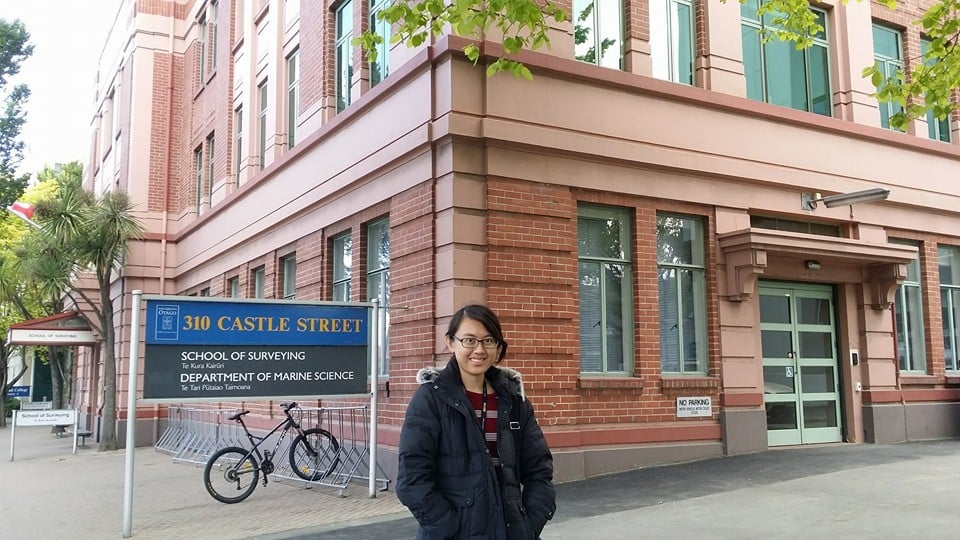 The journey began at 4am on a dark winter morning where a couple of skippers and several researchers gathered on the Portobello Marine Laboratory’s wharf where we did the final checks. By 6am, we departed on board the RV Polaris II.
The journey began at 4am on a dark winter morning where a couple of skippers and several researchers gathered on the Portobello Marine Laboratory’s wharf where we did the final checks. By 6am, we departed on board the RV Polaris II.
The course ran from Otago harbour to the South Pacific Ocean across the Munida Transect, approximately 65km towards Antarctica with about 12 sampling stations. As a swimming, snorkelling, and diving enthusiast, nothing could’ve prepared me for this experience.
The open seas were rough and the weather was relatively bad on that day. I was terribly nauseous for three quarters of the journey. But despite that, the sights were totally worth it! I managed to catch a glimpse of whales and dolphins in the wild, sunrise and sunset on the horizon, a few icebergs and numerous wild marine birds like the Royal Albatross. They came very close to the boat, literally within an arm’s reach from the cabin. I felt like I was in National Geographic. 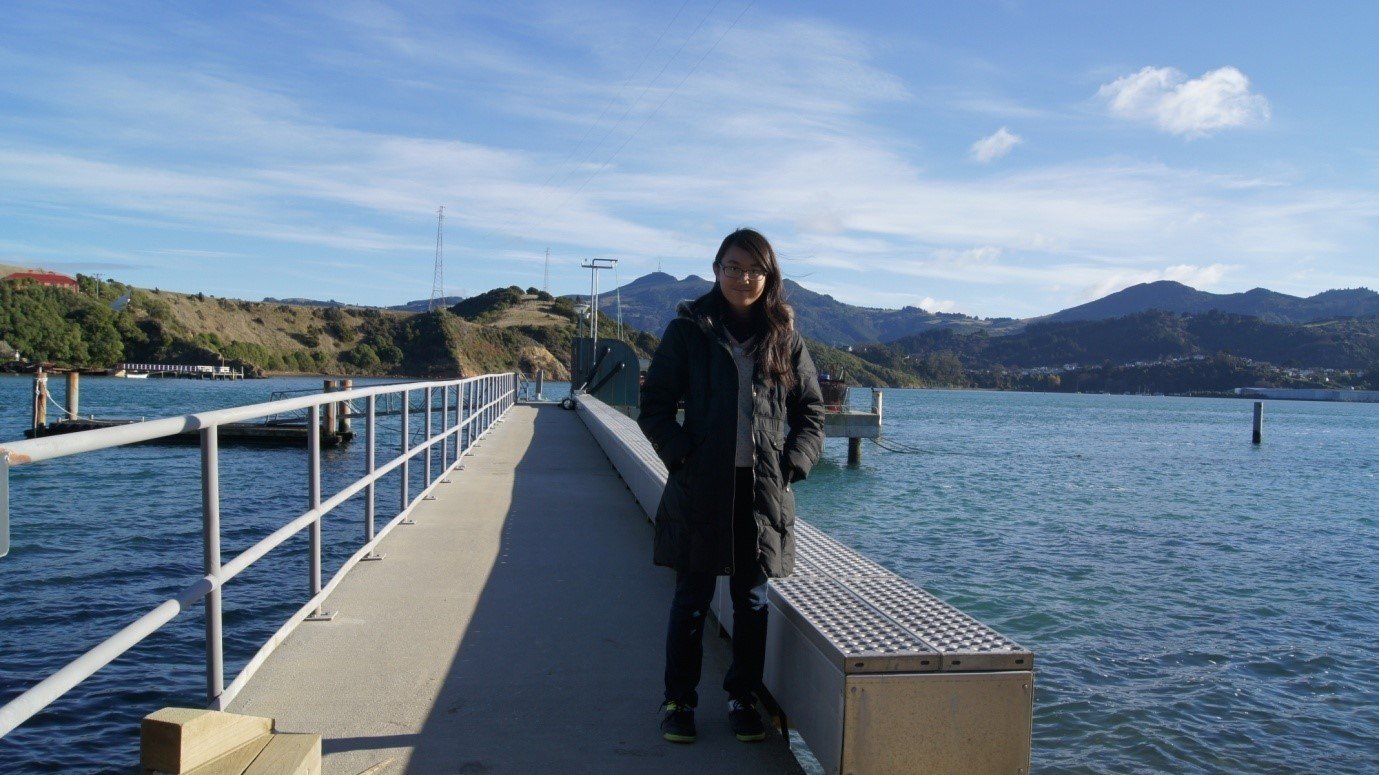
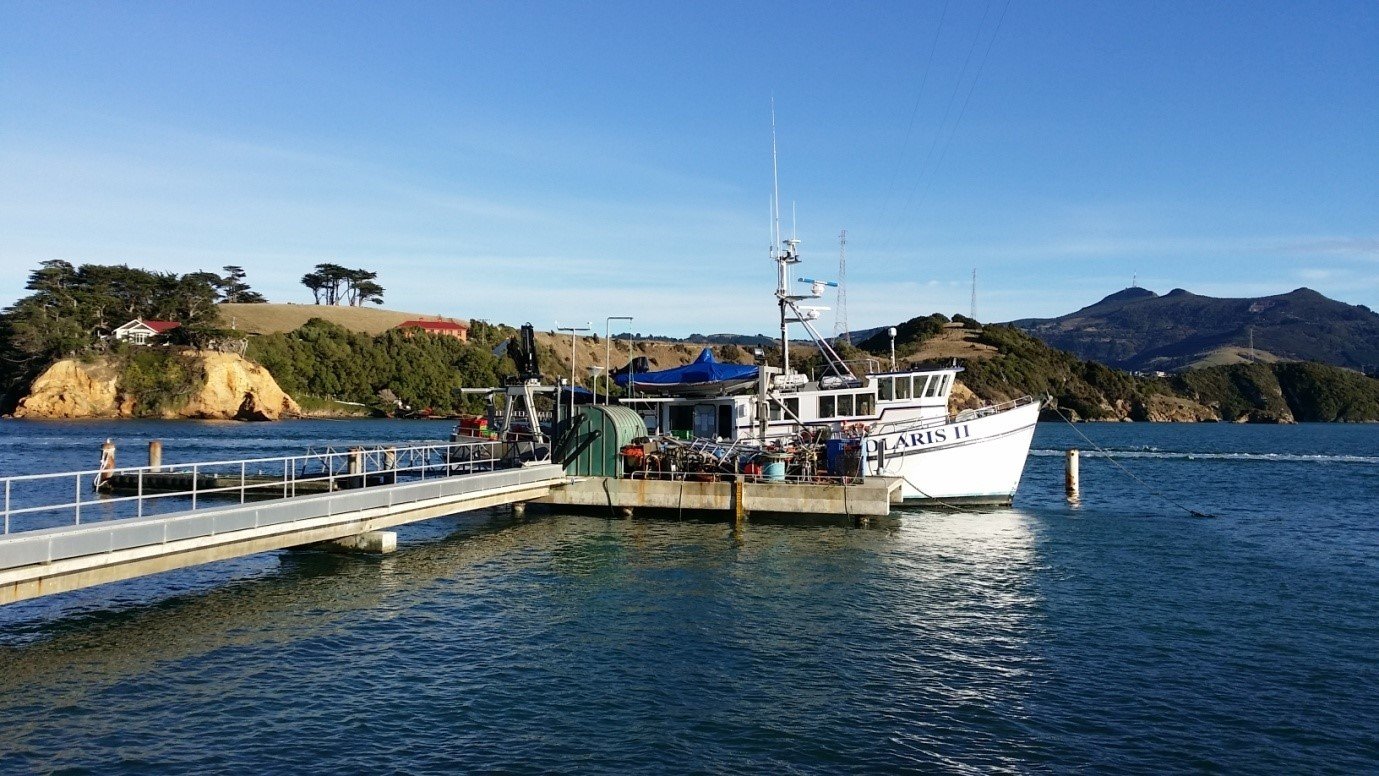 While being seasick, I managed to collect a few samples thanks to the help of everyone on board. It was also very hard pipetting while being constantly rocked by the gigantic waves. The long journey concluded in the evening and I set out with my lab mates to store the samples in the lab. Since working here, I’ve been to many different labs in three different locations in the small town of Dunedin.
While being seasick, I managed to collect a few samples thanks to the help of everyone on board. It was also very hard pipetting while being constantly rocked by the gigantic waves. The long journey concluded in the evening and I set out with my lab mates to store the samples in the lab. Since working here, I’ve been to many different labs in three different locations in the small town of Dunedin.
| While my area of study is microbiology of the ocean, I’ve learnt a lot about other marine lives from my peers and experts on the field. I also got firsthand experience of watching sea tulips in their natural habitat (and many other life forms). By exploring the world outside of Malaysia, I got to learn different cultures, meet different people, and above all, share our learned knowledge as scientists regardless of age or field. |
Of course, all of these wouldn’t have happened if it wasn’t for the support I had from my mentor and parents. I was privileged enough to intern at University of Otago, New Zealand, in the Department of Marine Science despite having another offer locally. I chose this as my internship placement simply because I love marine life. It has always been my favourite part of science since I was young.
The diversity of the ocean and the strange life forms that inhibit it has always astounded me and spark my interest in the many grey areas. In my opinion, Malaysia is lacking in this area of research.
How does IMU MB programme prepare you for your current position/appointment? The IMU MB programme is equipped with many hands-on activities that encouraged active learning which builds on basic lab skills while utilising old-school lecture style learning to build the student’s foundation in the said knowledge or field. From the lab sessions, final year project and industrial placement, I am better prepared to work in the research field more than I have expected. While there are numerous other new techniques that are not covered in the programme, the basic skills I gained were important to make the (new) learning process smoother.
| Another part of IMU MB Programme that stands out is the constant emphasis on professionalism in terms of attitude and giving constructive feedback. I find those values very important in the working environment especially the latter when handling problems or negative situations and when improvements are needed. |
The GEAR Programme incorporated was also helpful in introducing interview hacks like dressing up, speaking, body language, handshake etc. In my current experience, it is quite easy to spot people with good working attitude from those who don’t have and if I can spot it, I bet employers can too and this can affect their hiring decision.




